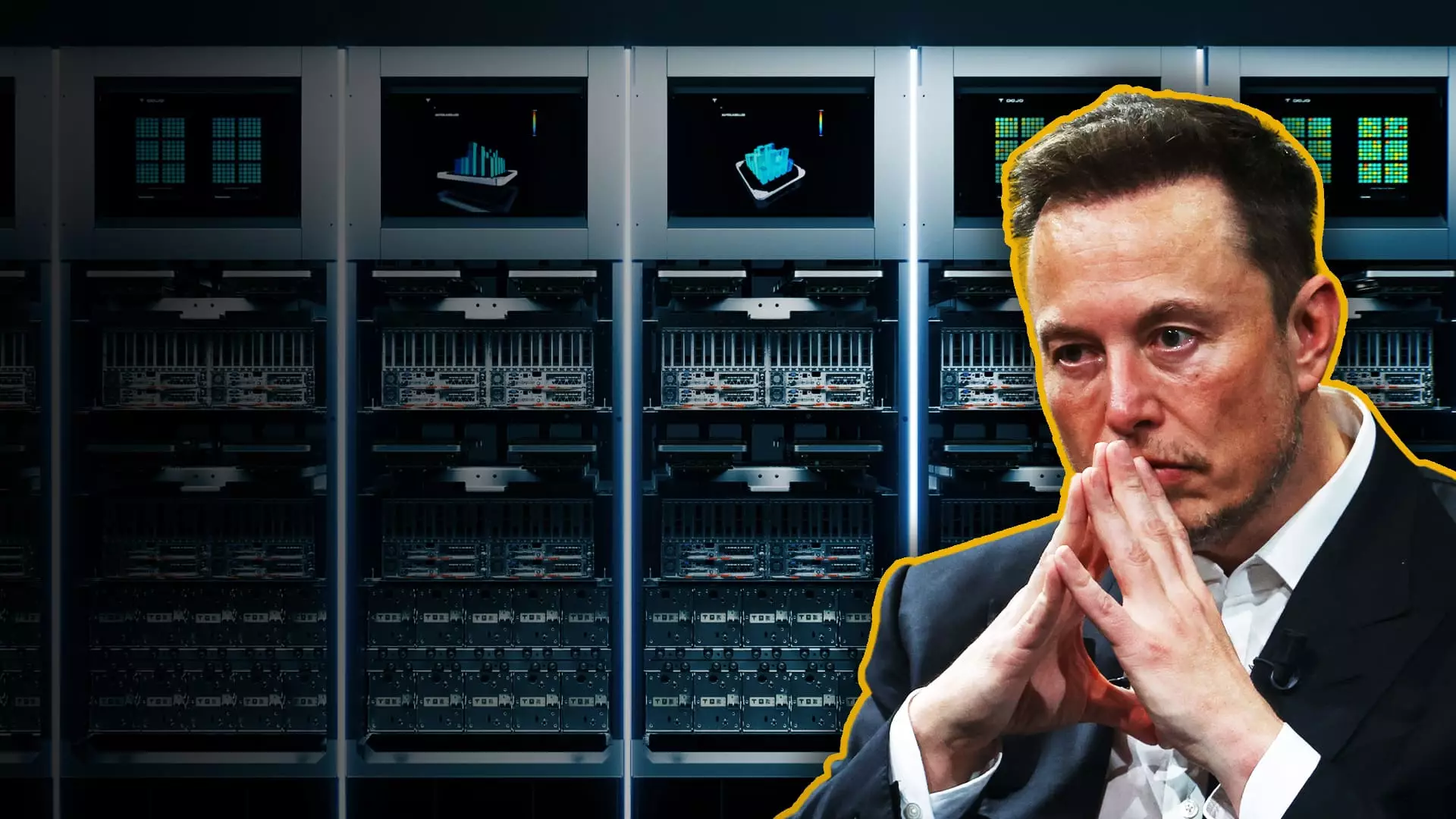Elon Musk, the influential CEO of Tesla, is embarking on an ambitious journey to reshape the technological landscape with the development of supercomputers designed to enhance artificial intelligence. Musk’s vision transcends traditional automotive boundaries; he articulates that Tesla should not merely be perceived as an automobile manufacturer but rather as a leader in AI and robotics. This perspective is exemplified through Musk’s initiative with the advanced supercomputer known as Dojo, crucial for propelling AI-driven capabilities within Tesla and beyond.
The Tesla Dojo supercomputer represents a pivotal element in Musk’s strategy. With a commitment to invest $500 million in constructing this powerhouse in Buffalo, New York, the company aims to harness extensive datasets generated by its fleet of vehicles. Each Tesla car is equipped with multiple cameras that capture vast quantities of video data as they traverse the roads, feeding back into the AI systems that the company is developing. By leveraging these insights, Tesla is on a path to enhance its Autopilot and Full Self-Driving (FSD) capabilities, promising users advanced features like automatic lane changes and traffic sign recognition.
In a world increasingly driven by data, the value of the information collected from millions of vehicles is paramount. According to Steven Dickens, a tech advisor at the Futurum Group, the potential of this training set is immense as it not only aids in refining Tesla’s self-driving technologies but also lays the groundwork for achieving full autonomy—an essential goal for the company’s long-term vision. With over 5 million cars on the road, each generating significant video data, Musk’s initiative aims to transform these insights into concrete advancements in the autonomous vehicle sector.
However, despite the ambitious goals set for Tesla’s autonomous systems, challenges remain. Regulatory scrutiny has tested the company’s marketing of its driver assistance features, drawing attention to claims regarding the capabilities of Autopilot and FSD. Critics argue that, despite Tesla’s progress, the vehicles still require driver oversight, as confirmed by the company’s disclosures.
This scrutiny becomes critical as Tesla’s market valuation remains closely entwined with the successful launch of its robotaxi fleet. Competing players such as Waymo, Cruise, and Zoox are making tangible strides in autonomous technology, further emphasizing the necessity for Tesla to keep pace or risk losing its market position.
Beyond the automotive realm, Musk aims to extend the capabilities of supercomputers through his new venture, xAI, launched in 2023. This endeavor seeks to develop large language models to compete with the offerings from established powerhouses like OpenAI, Microsoft, and Google. Musk’s dissatisfaction with the trajectory of AI development post his departure from OpenAI has driven him to innovate alternatives, emphasizing transparency and efficiency in AI products.
To further this mission, xAI is establishing a supercomputer in Memphis, Tennessee, dubbed Colossus, to facilitate the training of the chatbot Grok—an effort positioned as a direct rival to existing AI chatbots in the market. This move illustrates Musk’s broader ambition to create an ecosystem of AI solutions that prioritize user needs while challenging the status quo set by major tech conglomerates.
As Musk continues to bridge the gap between supercomputing and AI, the implications for Tesla are profound. The ongoing development of the Dojo supercomputer, along with Cortext clusters in Austin, represents a concerted effort to position Tesla at the forefront of the AI revolution. Not only will these systems bolster Tesla’s navigation technologies, but they also offer frameworks for training machines like the humanoid robot Optimus, which is scheduled for deployment within Tesla’s factories.
Consistent with his vision, Musk has pledged an impressive $10 billion investment in AI this year alone. As Tesla edges closer to unveiling its much-anticipated robotaxi services and bolstering its operational capabilities through AI-driven processes, Musk’s initiatives encapsulate a transformative disruption on the horizon of transportation and intelligent automation.
Elon Musk’s ventures into the realm of supercomputers and AI highlight a pivotal shift in industries poised for innovation. With the integration of advanced technologies, initiatives like Dojo and his work with xAI promise not only to redefine how we think about transportation but also to amplify the role of artificial intelligence in shaping our future.


Leave a Reply